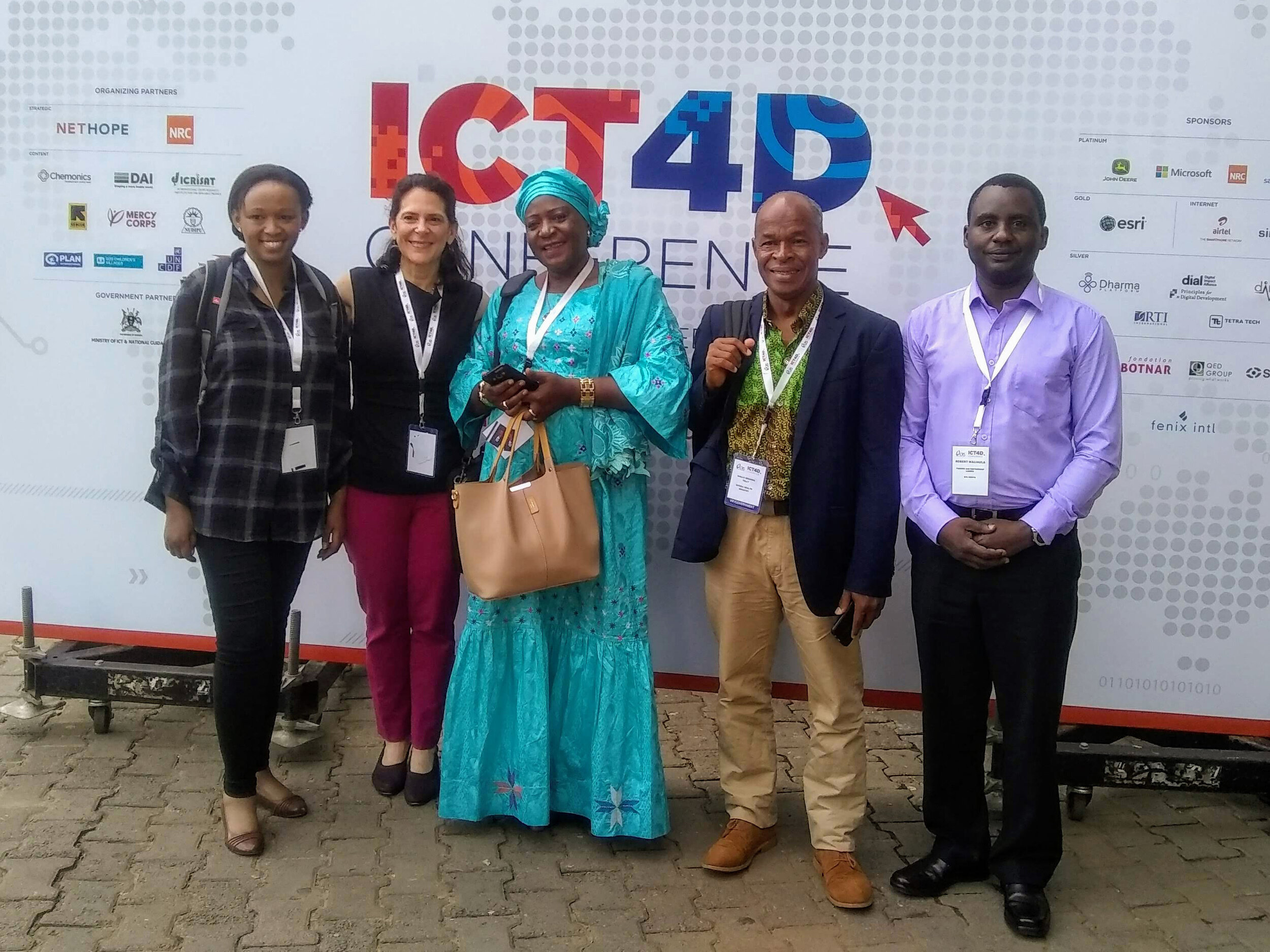For Children Like Himself
/Half a century ago, Robert Waliaula was born into a family that would grow to include eight children, in a small village in rural Western Kenya. Robert’s father was a small-scale farmer and his mother was an elementary school teacher. But even though their family farm was very small, all the children had to help keep it running. They planted and tended vegetables and drove their handful of livestock to water and grazing grounds.
Resources were limited.
Nonetheless…
After Robert first attended school several kilometers from home, and began waking up every day with pain in his feet, his father said, “No. This is torture for my child,” and decided to send him to boarding school. It was difficult to manage financially, but his father valued education and wanted his children to have a better life than his.
Because of their parents’ understanding of the importance of education, Robert and his seven siblings were the first in their village to go to first boarding school, and then on to higher education.
Robert liked it at the boarding school, but it was a long way from home, and there were four hundred other kids, speaking a variety of languages. The medium of instruction was English. They did have some mother tongue classes, but these were in the language of the area—not the language spoken in Robert’s village.
The students were pushed very hard, but Robert was at a disadvantage and had to repeat first grade. This was not because of his intelligence or his work ethic, but just because Robert only spoke his Lubukusu mother tongue—not English or even Swahili, the national language of Kenya. The school, however, thought that it was because he lacked the intelligence to learn and would therefore occasionally punish him and many other pupils like him, who were experiencing this language barrier.
This language barrier, and the attitude of instructors toward those who did not quickly grasp what they were teaching, made it difficult for Robert and the many other students in his situation to gain critical reading and math skills at an earlier age.
All through his first four years of primary school, Robert struggled with that language barrier. Through rote memorization, he managed to pass assessments that were administered in English. But he wasn’t learning anything, and a good number of the students he started school with did not have his ability to memorize and were forced to drop out of school early.
Robert persevered through primary and secondary school, learning English and ultimately excelling. But when he went on to university in India, he encountered yet another language barrier. Although instruction was in English to accommodate a variety of regional and international students, when the instructor wished to emphasize a point, he or she would switch back to the national language.
It was an excellent experience, though, and the school taught the basics well. Robert earned a first class honors in Economics degree and when he came home to Kenya, jumped into working as a high school teacher.
But after doing his postgraduate in education a couple of years later and attaining postgraduate qualifications in Strategic Management, he felt the need to go a different direction. So he found employment with a Christian organization, working as a coordinator of their health and nutrition programs, with a focus on HIV and AIDS education.
He continued to work in that field, doing consultancies in South Sudan.
Then one day he saw an advertisement at his church to work with SIL. He applied and got the job.
Funding was always a challenge, so Robert began to work with his colleague, Andrew Sweet, to diversify revenue streams. He began to work around the country, and even traveled to Washington, D.C first for an internship in relationship building, and later with a SIL colleague to attend USAID education meetings and to build relationships with people in other like-minded organizations.
In 2010, Robert began working part time for SIL LEAD. His job began to center more on partnership development and searching for new connections and opportunities—whether with NGOs or other organizations, in local embassies and abroad. He has been to Paris twice, working under experienced SIL colleagues first by attending the UNESCO Annual General Meeting and then to participate in the International Literacy Day celebrations. Robert learned a lot from these experiences, but they also provided opportunities to make connections and build relationships.
Robert is constrained now by having to do a lot of his work online and by the fact that advocacy is a slow process. The COVID 19 situation of course adds to this constraint.
Relationships take time.
But as limited as his work can sometimes feel, Robert has always felt encouraged and supported by SIL LEAD Executive Director Paul Frank, who has affirmed the vitality of his contribution at every step.
Robert has come a long way from that small holding farm in Western Kenya, to the big city of Nairobi, where he lives with his wife and two small children.
But in a very real sense, those early years are still with him every time he’s able to influence the improvement of education in Kenya and across the continent.
He enjoys seeing the tangible benefits of the work being done and takes pleasure in seeing children work through their education more quickly and with greater ease than he did—all because of the good foundation they’ve received, in part because of his and SIL LEAD’s efforts.
He’s been impressed by the proven methodologies of our expert collaborators as they have created writing and reading resources for children. He’s taught the Bloom program as well, and has enjoyed seeing people who previously couldn’t read at all beginning to create their own books.
So he’s grateful to be working with SIL LEAD, and looking forward to all the changes he’ll see in the future—playing a part in the development of communities just like the one in which he was born and raised.


